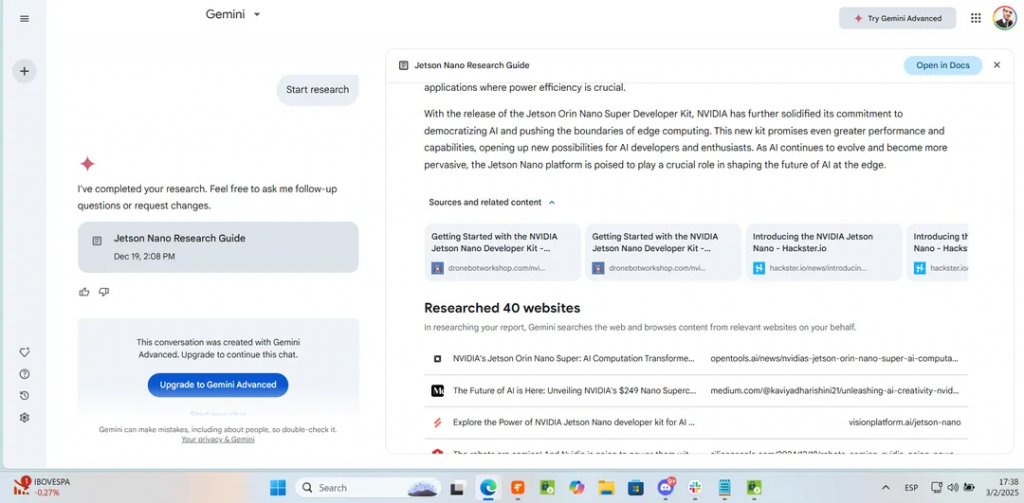
On February 3, OpenAI introduced the Deep Research agent feature for in-depth studies, available to Pro subscribers for $200 per month. Decrypt compiled a list of similar but more affordable or free alternatives on the market.
Access to this feature is restricted to the most expensive ChatGPT subscription due to high computational requirements. While OpenAI CEO Sam Altman has promised to make the tool available to all users in the future, similar solutions from other companies have already been available for several months.
people will post lots of great examples, but here is a fun one:
— Sam Altman (@sama) February 3, 2025
i am in japan right now and looking for an old NSX. i spent hours searching unsuccessfully for the perfect one. i was about to give up and deep research just…found it.
Gemini Deep Research — 10 Times Cheaper
In December 2024, Google launched its Gemini 2.0 AI model and the Deep Research feature, which uses “advanced reasoning” and “long-context capabilities” to generate concise summaries after conducting research. Briefs can be exported to Google Docs for further editing.
The service analyzes information using the internet, acting as a virtual research assistant. The results are presented in a summarized format with source links. The process works as follows:
- The user enters a query.
- Deep Research creates a “multi-step research plan.”
- The user confirms the start of the analysis.
- Deep Research conducts the study over a few minutes and generates a response.
Unlike OpenAI, Google imposes no limits on the number of queries. According to Decrypt’s tests, the research process mirrors Altman’s startup approach—users enter a topic and receive a structured response.

Regarding sources, Gemini prioritizes reputable scientific publications and respected news outlets over small websites and blogs. The process is quick, typically taking just a few minutes.
For example, researching the Nvidia Jetson Nano took three minutes. The model analyzed 40 websites and generated a six-page report detailing the technology, its functionality, potential, key competitors, and other useful insights.
The service is available to users of the Gemini Advanced paid version, which costs $20 per month.
You.com — If You Need Speed
AI startup You.com is known as a competitor to Perplexity in the search engine space. In November 2024, it introduced an AI agent for conducting research.
The tool can analyze up to 200 sources per query and applies research methodologies at a PhD level. It operates faster than OpenAI’s Deep Research, often processing queries in just a few seconds and rarely taking longer than a few minutes.
However, speed comes with trade-offs—You.com reports typically span only 2-3 pages.
The platform offers three free research queries per day, with additional access requiring a different plan.
DeepSeek R1 — Completely Free
The widely discussed Chinese model DeepSeek has built-in internet access, setting it apart from competitors.
To optimize the AI for complex reasoning, users need to select Deep Reasoning, which activates the R1 model. By default, the V3 model is used, focusing on creative tasks.
After enabling web search and reasoning functions, users must provide detailed, structured instructions—ideally in the form of an outline or set of guidelines.
R1 showcases its thought process in real time. Users can ask follow-up questions for additional information. Decrypt’s initial analysis yielded a three-page report, which later expanded to 25 pages of relevant content on the given topic.
Other Competitors
Decrypt also highlighted the capabilities of Beago AI, Perplexity Pro, and AI Scientist.
Reminder
In January, OpenAI introduced its own AI agent, “Operator,” which can perform internet-based tasks on behalf of users.








 Cryptol – your source for the latest news on cryptocurrencies, information technology, and decentralized solutions. Stay informed about the latest trends in the digital world.
Cryptol – your source for the latest news on cryptocurrencies, information technology, and decentralized solutions. Stay informed about the latest trends in the digital world.